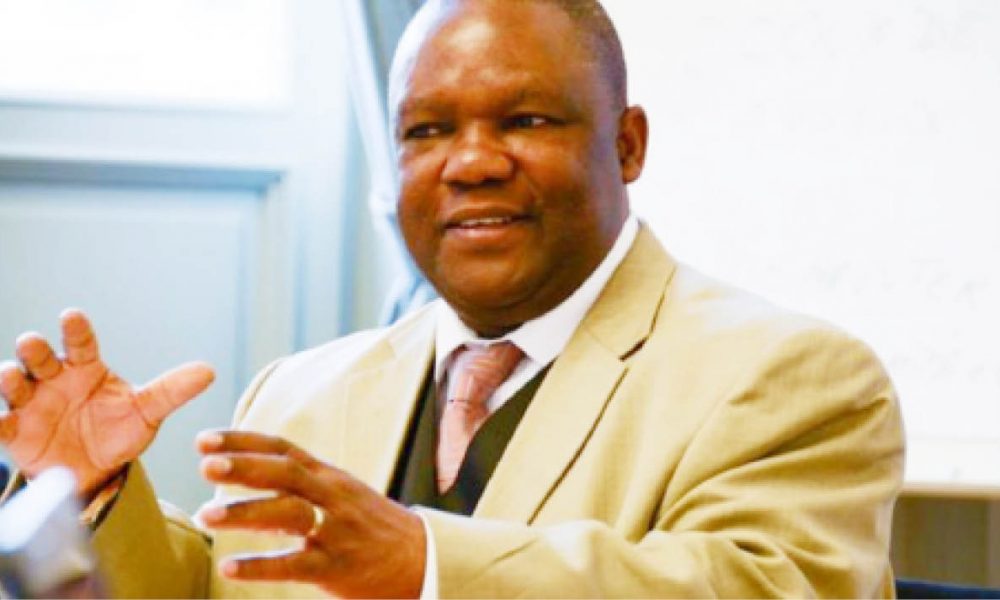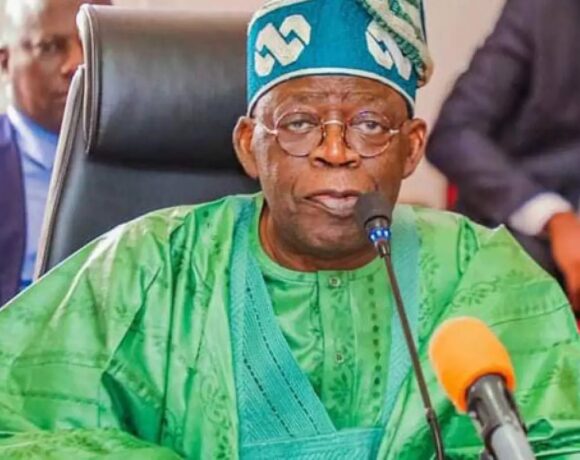Economic Statecraft, by Obadiah Mailafia

By Obadiah Mailafia
In terms of financial wizardry and sheer genius in economic statecraft, the only master I bow to is the legendary sage, Chief Obafemi Awolowo. I am no cultist and I do not subscribe to the Awo cult. But I believe he was an extraordinary statesman and an economic genius to boot.
Former Head of State, General Yakubu Gowon, once observed: “If you know of a man greater than Obafemi Awolowo, I would like to meet him.” He is in a position to know. He released Awolowo from Calabar Prisons in July 1966; making him Minister of Finance and Vice-Chairman of the Federal Executive Council. He was de facto Number 2 during those days.
When I ponder the foundations of economic policy management in Nigeria, the relevance of Awo’s ideas seem as fresh as yesterday. The late sage was an economist, lawyer and statesman. As Premier of the defunct Western region, he invested in human capital, in industry, agriculture and rural development and in basic physical infrastructures. He used the region’s cocoa revenues prudently to build up the economy of the West.
He created several institutions to drive the process of social and economic transformation of the region. Among them were: The Western Nigerian Development Corporation, the Finance Corporation, and the Western Nigeria Housing Corporation. All these agencies were supervised and coordinated by the Western Nigeria Ministry of Industries.
The old Western Region had the best civil service in Africa, if not in the emerging Commonwealth. A great intellectual himself, he did not suffer from the inferiority complex of the typical Nigerian political-jobber who pours scorn on intellectuals because he himself is an inferior man. Awolowo brought into his inner circle men of distinction such as Simeon Adebo, Rotimi Williams, Ojetunji Aboyade, Samuel Aluko, Hezekiah Oluwasanmi, Banji Akintoye, Sam Ikoku, Anthony Enahoro and Alfred Rewane, who was his life-long bosom friend.
He sought the counsel of men and women of excellence. But he was always master of his own brief.His commitment to his own vocation and dharma was singular and uncompromising. In his own words: “While many men in power and public office are busy carousing in the midst of women of easy virtue and men of low morals, I, as a few others like me, am busy at my desk thinking about the problems of Nigeria and proffering solutions to them. Only the deep can call to the deep.”
Great men are always bound to be misunderstood, if not rivalled by their enemies. Our Igbo brethren accuse him of having spread hunger as a weapon of war during the Biafran War which led to a harrowing tragedy of one million dead, most of them children. They also blame him for the policy of allocating a paltry 20 pounds to all Easterners as part of the post-bellum settlement. They also attacked him bitterly for advocating the banning of Okrika, an area of business that is still dominated by Igbo traders to this day.
History has absolved him from his traducers.The sage did not believe it was up to him to feed his adversaries in war so that they would be stronger enough to fight him later. He also revealed that the 20 pounds policy was a collective ministerial decision that could not have been made by one minister. As for the Okrika palaver, I do not think anyone should be proud of seeing our people wearing the used clothes of dead white people. More so, that we are hearing that the Chinese are gathering all the clothes of their dead Covid-19 victims into containers destined for Africa.
As Finance Minister, Awolowo ensured that throughout the war years, 1967 to 1970, Nigeria did not borrow a single dollar from the Washington Institutions, bilateral partners or the international capital markets. Even more remarkably, the rehabilitation and reconstruction of the war-torn East was accomplished without a begging bowl.
How did he achieve these extraordinary feats?
First, he was a man of fastidious discipline. During the tail-end of Empire, the British colonial administrators used to complain that Awolowo would not deign to share a bottle of wine with them. He had no time for such things.
Awo conquered the baser passions, to allow himself to focus on high and noble goals:“I will, more than ever before, subject myself to severe self-discipline. Only men who are masters of themselves become easily masters of others. Therefore, my thoughts, my tongue, and my actions shall be brought under strict control always.”
Obviously, if you want a good Finance Minister, never go for someone as flamboyant as Okotie Eboh. Go for someone who is lean and mean. Woe betides you if you go for a greedy pig. You will only get a pork-barrel. Go, rather, for someone who is modest and restrained in his ways – someone who can say “No”. A man or woman with courage and convictions – who can stop all the bleeding and haemorrhage that defines our fiscal space today. Awolowo was of such a breed.If he saw you with a woman other than your wife, you were out of his cabinet. He believed that if a man could not be disciplined in his private life, you could never trust him to be disciplined with government assets entrusted to his care.
Secondly, he led by example. Awolowo never lived in a government building throughout his career, unless you characterise his 3 years in Calabar prison as being residency in a “government building”. As Premier of the West, he lived in his own house at Oke-Bola, Ibadan. Whilst serving the Federal Government, he resided in his private house in Apapa. He took financial accountability very seriously.
Thirdly, he always did his homework. Confronted with challenges, he was not one to seek advice from a Babalawo or a necromancer – or even some of those charlatans that we know today as “prayer contractors”. Rather, he would retreat to the inner sanctums of his own study. There, he would think and analyse and develop solutions.
He had this big epistemological theory which he described as “Mental Magnitude”. Awolowo was, of course, an outstanding philosopher-king. One of his best friends was the distinguished Austrian-British philosopher of science, Karl Popper. Awolowo used to spend some of his weekends at Popper’s home on the outskirts of London; discussing philosophy and the requisites for a free and prosperous democracy.
The philosopher Akin Makinde, who held a series of detailed interviews with the sage shortly before his death, explains that Mental Magnitude derives from a combination of the thinking of Plato, the Roman Stoics and René Descartes. According to him, “Mental Magnitude is a philosophical doctrine which derives from a theory of mind and body, with the assertion that the mental is superior to the physical element of a person, and should take control over the emotions, desires, and actions”.
Mental Magnitude demands that we embrace the discipline and hard work of thinking and using our mind and rational faculties to solve humanity’s manifold challenges. It is the antithesis of superstition, ignorance, incompetence, solipsism and stupidity.
Finally, Awolowo was a man of supreme confidence. He was not arrogant, although many of his political enemies misinterpreted his consummate self-confidence as hubris. He did not suffer fools gladly, if truth be told. He was so sure of himself and of his own God-given endowments that he saw himself as inferior to nobody. This is why he was loathed by a Northern Caliphate that was steeped in feudalism and the false mythology of “born-to-rule”.
Addressing the youths recently, one of his protégés, eminent historian Banji Akintoye, reminded us: “Chief Obafemi Awolowo’s success was due to his confidence that the British white rulers of Nigeria were not superior to Nigerians, and that Nigerians can indeed achieve great things…You are much stronger than you think. Sure, you do not have the kind of money that the corrupt politicians of these days have; but if you use your head, mobilise your huge numbers and your education sensibly, and if you operate purposefully and with discipline as Chief Awolowo would do in circumstances such as these, you can change the destiny of your peoples for the better.”
Nigeria’s destiny will be made or marred in the coming post-coronavirus “new normal”. Two roads stare us in the face: the straight and narrow calls for discipline, restructuring, rebirth and economic transformation; while the other – of profligacy, banditry, genocide, incompetence – portends disintegration and dissolution. It is a choice that we must make. How we manage the looming fiscal crisis in the emerging global order will determine whether we survive or perish. Awolowo’s wisdom must be our guide if we are to overcome and prevail.
To quote the American poet Robert Frost: “Two roads diverged in a wood and I – I took the one less travelled by, and that has made all the difference.”
Wishing you all very joyful Eid celebrations!
The Insight Report
Nigeria Coverage



